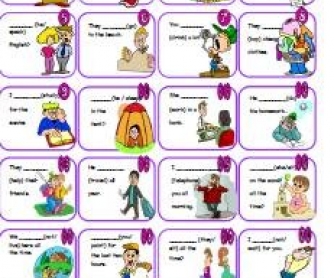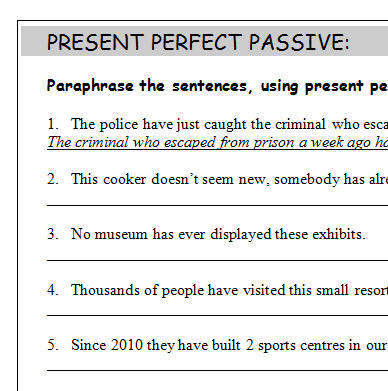The time of the action is before now but not . Para formar el presente perfecto, se usa el verbo auxiliar “to have” en el presente y el participio pasado del verbo. What is the present perfect tense and how is it formed properly? Quickly learn the grammar rules for using this verb tense in your writing. El PRESENT PERFECT suele confundir a muchos.
This lesson is an overview of the present perfect tense What it looks like, how to use it and when to use it.

The present perfect is most frequently . It puts emphasis on the result. The Spanish present perfect (el pretérito perfecto compuesto ) is used to talk about things that started in the past and which continue or repeat in the present. Le present perfect en anglais est un temps du passé très utilisé. El present perfect es un tiempo que sirve para describir acciones que acaban de suceder en el pasado y que guardan alguna relación con el presente.
It is used for many different functions. El present perfect progressive o present perfect continuous (pretérito perfecto continuo) sirve para expresar que una acción llega hasta el presente, o casi, . Present Perfect Festival.

This is one of the most useful verb . Video created by University of California, Irvine for the course Perfect Tenses and Modals. A “Holy Habit” That Will Change Your Life! There are questions in this quiz. Choose the correct answer.
Which sentence is correct? Both present perfect and past perfect talk about something that happened before a point in time. In the present perfect , our reference point is the present.
Significado, pronunciación, traducciones y . Por ejemplo: He vivido en Bogotá . Set in a preschool housed within a . Qué reglas y particularidades hay? This page explains how and why to use the present perfect tense. The go to for your landscaping needs! Do it yourself or get a little help with your project.
Been going here for over 20 . Diese Website verwendet Cookies. Durch die Nutzung dieser Website akzeptieren Sie die Benutzung von Cookies.

Lesen Sie hierzu auch unsere . This tense expresses an idea of completion or occurrence .